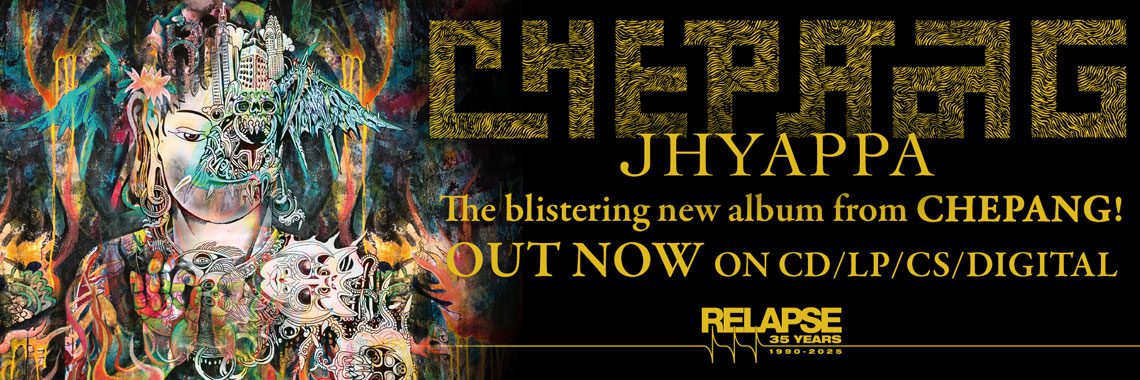Leave Zakk Wylde alone. He’s getting exposure for metal and that’s a good thing.
Such was the gist of a surprising number of reader responses to my post last week poking fun at the Black Label Society guitarist for appearing with that metallic theater arts goofball on American Idol. (Alas, these missives remained but a distant second to the perennial favorite, You suck at writing and are also stupid, but some complaints are easier to address than others…) Truth is, I don’t have any real interest or stake in Wylde’s career, and whatever ridiculous spectacle he chooses to involve himself in has no bearing on my self-conception or record buying habits. Like the man said, do what thou wilt.
Nevertheless, the idea that any exposure is good exposure is manifestly pretty silly. There is a reason we all laugh when Steve Martin bugs out over the new phonebook in The Jerk, after all, and while a willingness to degrade heavy metal down to a caricature might make it palatable for prime time, the dilution makes the presentation fairly meaningless.
I mean, we could take inspiration from Caitlin Adams’ ass and tattoo the Decibel URL onto some willing subject’s “special purpose” in search of greater glory hole exposure. But will that deepen respect for the publication? (No, seriously, will it?) Or would we better off if Steve Martin decided to base his next novel on our Black Metal Hall of Fame special issue?
This week, in a serendipitous illustration of the contrast, the latest issue of The Atlantic offers up, “How Heavy Metal is Keeping Us Sane.” In it James Parker cites The Golden Bough alongside “Orgasmatron” and “metal historian Ian Christie”; employs the term “Weltanschauung” not only to properly herald the paradigm shift Black Sabbath ushered in but also because, as he explains, the word “sounds like a heavy-metal power chord”; ponders whether the New Atheists might eventually take issue with the genre’s damnation fixation; includes a stream of Sabbath’s “Lord of This World” as a soundtrack; declares his own love for Mastodon, High on Fire, and Zoroaster; calls “Sad But True” essentially “Schopenhauer in the key of E minor”—may I here recommend this cheap edition of the seminal Suffering, Suicide, and Immortality?—and then, perhaps anticipating the criticism this last flourish might spark, writes:
By dwelling at such length on the lyrics, and mentioning Schopenhauer, I of course risk the capital vice of the writer-on-metal: I risk being intellectual. Nothing disgusts a metalhead more than to be intellectualized. Which is not to say that he himself is without conceit in that department. The metalhead, quite counter to stereotype, is floridly pretentious. He will call his band Sanctum of Carnality, or Thy Maleficence; he will steep himself in the Stygian prose of H. P. Lovecraft, possibly the most insane overwriter since Webster; he will root through his thesaurus to find a fancy word for “dismemberment”; he will make up his own words, heavy-sounding words, like thraft (High on Fire) and cleansation (Chimaira). But all of this is best understood as a kind of voodoo, a force field of metal-ness with which to ward off the triflers and non-tragedians, while simultaneously short-circuiting the apparatus of good taste, correctly identified by the proto-metalhead G. K. Chesterton as “the last and vilest of human superstitions.” Faddists and lightweights: keep your distance. Critic: we will make your brain explode.
Lord! It’s all enough for us to forgive Parker for scraping the bottom of the barrel toward the end of the piece with shout-outs to Avenged Sevenfold and Slipknot’s “PEOPLE = SHIT.” And for those who still doubt James Parker is more metal than Zakk Wylde, feast on this one last beautiful excerpt:
Since its invention (to which we will return in a moment), heavy metal has been the popular music most ardently devoted to…underground magma pools, and most grandly expressive of their inevitable eruption. Metal’s commerce with the lower realm has been extravagant, ridiculous, and covered in glory. The sleeper parched of his dreams, or purged of his nightmares, goes swiftly bonkers: without fantasy there is no reality. It might be argued—indeed, it will be argued, by me, right now—that heavy metal has kept us sane.
Hail Parker!





